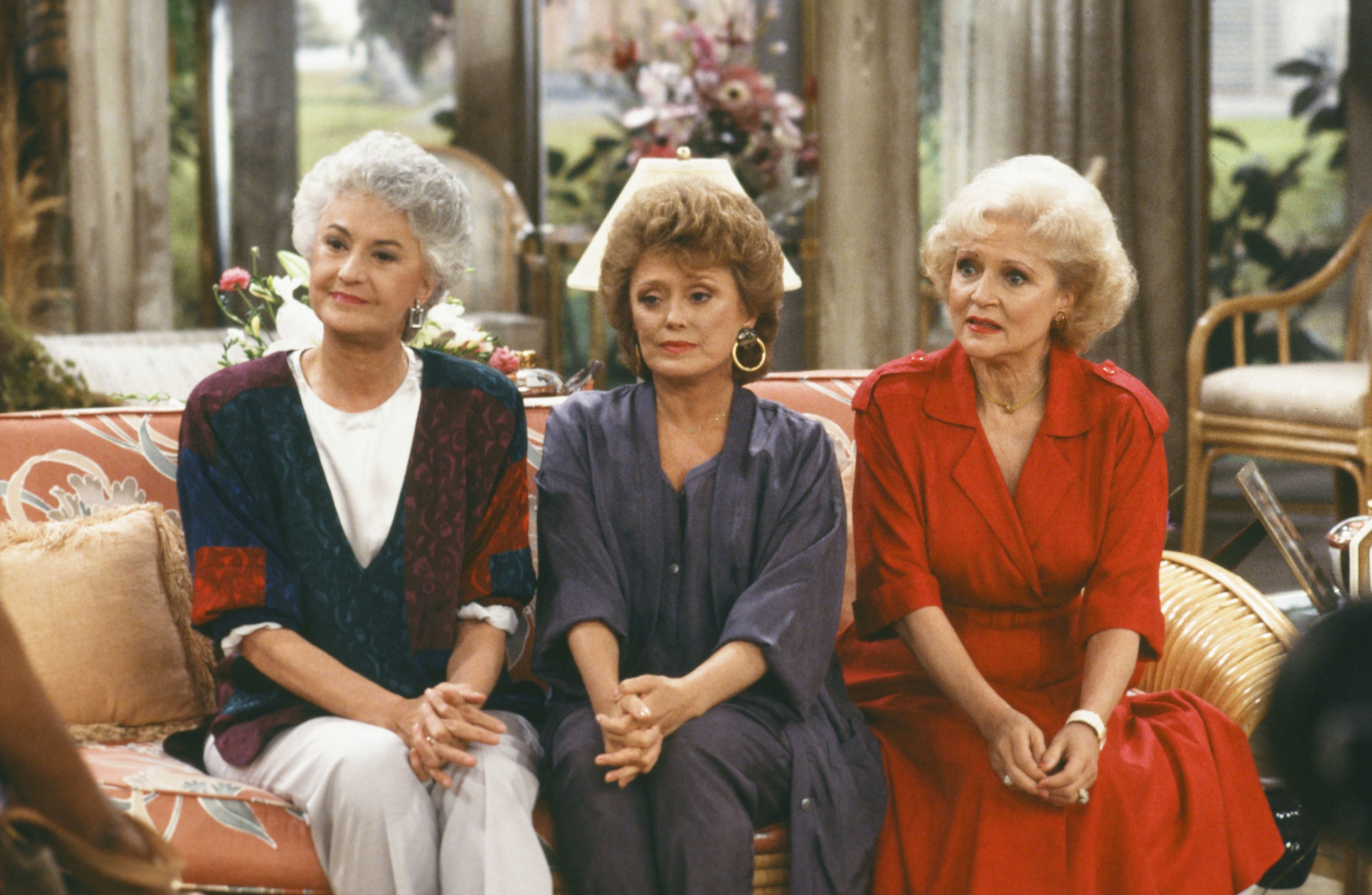‘The Golden Girls’ Featured Rare Representation of LGBTQ Community
The television industry has come a long way over the past few decades, With the changing times have come evolved and enhanced series and productions, but that isn’t to say there hasn’t been a few gems along the way.
The 1980s marked a significant increase and growth in media, especially within the television industry. Popular networks like Cable News Network (CNN) and Music Television (MTV) were founded during the ’80s.
Growing Pains, Family Ties, and Magnum P.I. were just a few of the successful series airing during these times. The Golden Girls was another incredibly popular program that launched during this era, and some people might be pleasantly surprised to learn that the sitcom featured some rare representation of the LGBTQ community.

A look back at ‘The Golden Girls’
In the fall of 1985, NBC launched The Golden Girls, and the show became an instant hit.
Brandon Tartikoff, former executive and president of NBC, got the idea after visiting one of his elderly aunts, reports Mental Floss. Apparently, Tartikoff’s aunt’s neighbor was also her best friend, and despite the senior citizens’ constant bickering, they still remained the best of friends. Tartikoff found their dynamic both interesting and charming and used it as the inspiration behind The Golden Girls.
The show took place in Miami and was centered around four older women. Dorothy Zbornak, Rose Nylund, Blanche Devereaux, and Sophia Petrillo were the four main characters on The Golden Girls. Betty White, Rue McClanahan, Estelle Getty, and Bea Arthur were the talented actresses who took on these roles.
Through divorce and death, all of the ladies found themselves to be single in their later lives and, as a result, the characters formed a close bond and relationship with one another despite the trying and difficult times that come with getting older. Fashion advice, subtle jokes, cooking fiascos, and sassy one-liners were just a few things the besties were known for.
The end of ‘The Golden Girls’
The series aired for 7 seasons before tearfully coming to an end. The decision stemmed from Arthur. There were a lot of rumors and speculations that an alleged feud between White and Arthur is what led to this decision, but Arthur shared that wasn’t the case, or at least not the whole story.
Arthur explained that she felt like the writers had nowhere else to take the characters’ stories. She reluctantly stayed for one last season before officially calling it quits in 1992. However, the rest of the cast wasn’t quite ready to say goodbye.
The following fall CBS aired The Golden Palace which was a spinoff of The Golden Girls. For the most part, the concept was the same except Dorothy was missing and the remaining gals’ storylines revolved around their decision to invest in a hotel.
Of course, as many can imagine, the show was not nearly as successful as its predecessor and ended after one season, but, to be fair, The Golden Girls was a tough act to follow. The Golden Girls often received praise, recognition, and awards for the groundbreaking and enjoyable content the series was able to produce.
‘The Golden Girls’ featured rare representation of LGBTQ Community
The Golden Girls aired during a different era, but even during the times, the series seemed well-ahead of its competitors. During the 1980s, there was extremely limited representation of the LGBTQ+ community on television networks.
Unfortunately, not only was there a gap in characters but also a gap in conversation and content, but that began to change with shows like The Golden Girls.
The series’ pilot included Coco, a lesbian known for her cooking skills, and Jean, Dorothy’s friend from college, is another LGBTQ character who is featured on The Golden Girls. Clayton, Blanche’s brother, also was able to illustrate and portray a slightly more realistic sense of the LGBTQ community. Though the characters and content was limited, it was still monumental considering the times.


